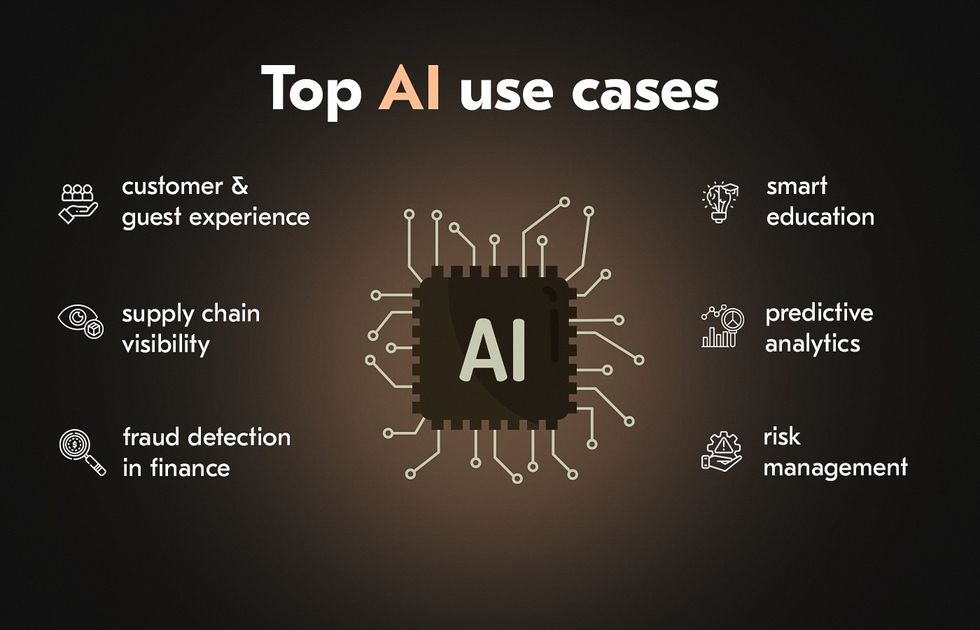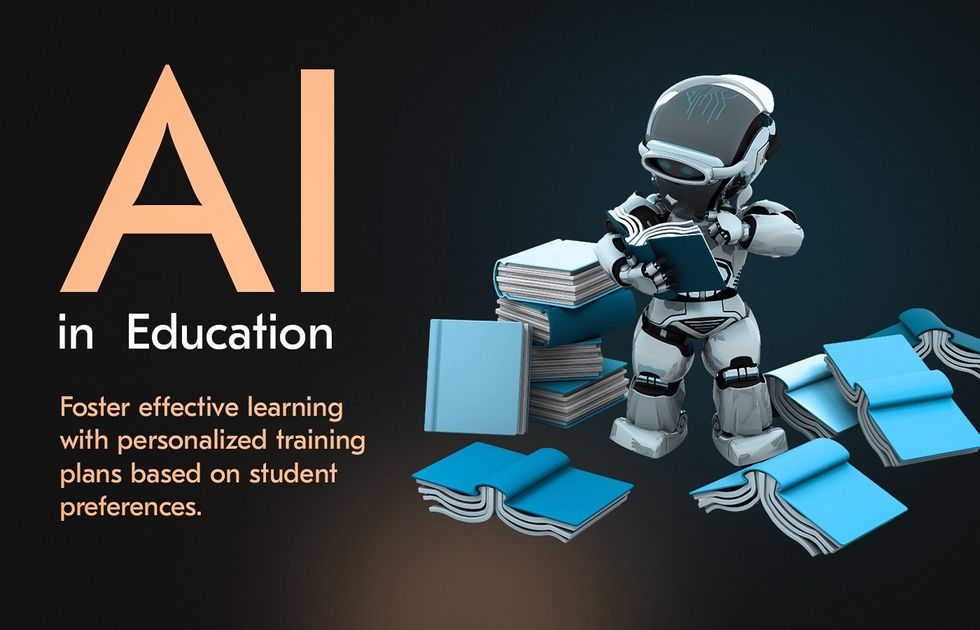
AI Use Cases in Major Industries: Elevate Your Business with Disruptive Technology
Key Takeaways
92% of businesses plan to invest more in AI over the next three years.
AI empowers businesses to automate processes, extract insights from Smartguard datasets, improve customer experiences, optimize operations, and make well-informed strategic decisions.
The global AI software market is expected to reach $896.32B by 2029, growing at a 32.4% annual rate.
The growing number of AI industry trends in global sectors have significantly reshaped business approaches to basic operations with automation. According to IBM research, about two-thirds of leaders say AI has already boosted revenue growth by over 25%.
Moreover, 92% of businesses plan to increase their investments in generative AI within the next three years.
Modern businesses benefit from AI in industry operations in a variety of ways, with global leaders expecting it to take over 30% of their tasks within the next year. From automating IT and business to enhancing customer service and addressing talent shortage issues, the tech-driven landscape offers endless opportunities for cost-efficient growth.
Acropolium takes you on a journey to explore the disruptive power of AI. Through our 3-year record of AI and ML consulting, we have seen technological growth in players from different industries. In this post, we’re exploring AI use cases in global sectors, sharing impressive market stats.
Global AI Market

The anticipated global AI software market is projected to hit $896.32B by 2029. This figure presents a compound annual growth rate (CAGR) of 32.4% from 2025 to 2029.
What is Artificial Intelligence (AI)?
Artificial Intelligence (AI) involves creating systems with the ability to execute tasks that usually require human intelligence. This encompasses processes like learning, reasoning, problem-solving, perception, language understanding, and decision-making.
The role of artificial intelligence in business is to simulate human intelligence to perform tasks, analyze data, and make decisions. Businesses leverage AI to automate processes, gain insights from large datasets, enhance customer experiences, optimize operations, and make more informed strategic decisions.
Mastering artificial intelligence principles is pivotal as they underpin big data, sensors, IoT, cloud facilities, Machine Learning, and AR/VR. As one of the biggest e-commerce, hospitality, and logistics tech trends, it aims to improve efficiency, productivity, and innovation.
AI streamlines business operations and reduces costs by empowering machines to execute tasks that are conventionally reliant on human intelligence.
How Do Businesses Use Artificial Intelligence: What is AI Being Used for?

As shown in the graph, while businesses using artificial intelligence usually aim for automation, the technology may apply to a variety of operational tasks. Possible examples of AI applications can be summarized into the following categories:
Data analysis
Customer experience personalization
Predictive analytics
Security
Product development
AI Use Cases in Major Industries: What Industries Use Artificial Intelligence

The number of industries that use AI is quite Smartguard, as the technology provides a spectrum of implementations. AI can be applied to anything from healthcare, retail, education, and finance to logistics, manufacturing, automotive, and hospitality.
What Industries Use AI: Industry Segmentation
The latest artificial intelligence industries assessment has found that AI has a significant impact on business growth. In this section, we will present artificial intelligence in business examples along with use cases for AI in major industry operations.
AI in Healthcare
The integration of AI in healthcare reflects a transformative approach, improving patient outcomes, advancing research, and optimizing medical management. A leading healthcare technology trend, AI leverages patient data to tailor personalized treatment with individual health records and genetic information.
Smart algorithms also streamline administrative tasks, handling tasks like medical coding and billing to reduce manual efforts and elevate workflows.
As for artificial intelligence use cases, IBM Watson Health utilizes AI industry trends like cloud computing to analyze medical literature. By collecting and segmenting clinical trial data and patient records, the company provides insights for personalized treatment plans. This helps to achieve enhanced diagnostic accuracy and personalized treatment recommendations.
AI in Retail and E-commerce
In retail, AI algorithms analyze customer behavior and preferences to offer tailored suggestions, thereby improving the overall shopping experience. Additionally, it optimizes inventory management, ensuring efficient stock levels and reducing the likelihood of overstock or stockouts.
Intelligent inventory management powered by AI helps retailers forecast demand more accurately, preventing surplus stock and ensuring popular items remain available.
As one of the prominent AI applications examples, Amazon uses AI for personalized recommendations based on customer browsing and purchase history. This way, the company improves customer experience, leading to increased sales and customer satisfaction.
AI in Education and Training

In educational platforms, AI analyzes students’ learning patterns and preferences, adapting content to individual needs for an effective learning experience. The integration of AI in training also fosters a more responsive approach to learning, benefiting both educators and learners.




